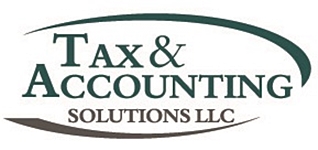Attention Truck Drivers & Transportation Workers: Do You Know What Expenses You Should Be Tracking?
Truck drivers, or other transportation workers, can claim a variety of tax deductions while on the road. Fuel, daily meal allowances, truck repair (maintenance), overnight hotel expenses and union dues are some of the tax deductions available. However, local truck drivers typically cannot deduct travel expenses.
 Transportation workers are employed or self-employed individuals whose work directly involves moving people or goods by airplane, barge, bus, ship, train or truck. Their job regularly requires these workers to travel away from home and, during any single trip, usually involves travel to areas eligible for different federal reimbursement rates for meals and incidental expenses (M&IE).
Transportation workers are employed or self-employed individuals whose work directly involves moving people or goods by airplane, barge, bus, ship, train or truck. Their job regularly requires these workers to travel away from home and, during any single trip, usually involves travel to areas eligible for different federal reimbursement rates for meals and incidental expenses (M&IE).
Travel expenses are an allowable expense when business takes you away from home. The IRS generally defines your “tax home” as the home terminal (and its surrounding vicinity) that you use most often or from which most of your income is derived. For the IRS to consider you as being “away from home,” you must be away from your tax home for substantially longer than a day’s work and you must get sleep or rest to safely meet the demands of your job.
Transportation workers can use a special federal M&IE rate, so they do not have to determine the federal M&IE rate for every area they stop for sleep. However, if they use the special rate for any trip, they must use the special rate for all trips they take during that calendar year.
The special federal M&IE rates for transportation workers did not change from 2014 and remain at $59 for travel inside the continental United States (CONUS) and $65 for travel outside the continental United States (OCONUS).
The deductible percentage for meals is 80% rather than 50% for workers subject to the Department of Transportation’s (DOT) hours of service. Workers subject to the DOT’s hours of service rules include:
- Certain air transportation employees (pilots, crews, dispatchers, mechanics and control tower operators) who are under Federal Aviation Administration regulations
- Interstate truck operators and interstate bus drivers who are under DOT regulations
- Certain railroad employees (engineers, conductors, train crews, dispatchers and control operations personnel) who are under Federal Railroad Administration regulations
- Certain merchant mariners who are under Coast Guard regulations
How you report the reimbursements received from an employer varies depending on the rate of reimbursement and whether your employer has an accountable plan. An employer with an accountable plan may reimburse you using (1) actual expenses, (2) per diem rates or (3) a high-low method.
Your employer may make reimbursements at less than, more than or equal to the federal rates that the IRS considers acceptable as substantiation for travel. Your employer will include any reimbursements in excess of the substantiated amounts on your Form W-2. These amounts are subject to the usual withholding taxes.
You can deduct substantiated expenses that exceed reimbursement on Form 2106, Employee Business Expenses, as employee business expenses subject to the two percent adjusted gross income limitation on Schedule A, Itemized Deductions. In order to claim expenses, you should keep good records of your travel.

